News

MOD strengthens Sri Lanka's strategic defence communication network
Sri Lanka’s Strategic Defence Communication Network (SDCN) is to be further strengthened and restructured to prevent the re-occurrence of terror attacks similar to Easter Sunday suicide attacks.
The Ministry of Defense (MOD) has taken measures to restructure and streamline the entire system in order to strengthen the intelligence apparatus and national security.
The SDCN is being maintained with aim of providing continued and secured alternative communication network similar to the modern communication system that exists between the tri forces, informed sources said.
The network consists of 37 microwave links connecting 22 terminal points countrywide and was initially planned to be completed planned to complete under the mid-term expenditure framework implemented during the period from 2014 to 2016, a government audit query revealed.
However, the term of the project had been extended beyond the year 2018. Further, the initial estimated cost of LKR 1,192 million had been revised as LKR 1,854 million without obtaining the approval from relevant parties, audit query observed.
It was observed that 22 electricity generators including generators procured and installed at a cost of LKR 15.70 million in 2016 and other 12 generators procured at a cost of LKR 10.80 million in 2017 had remained idle at the premises without being utilized for intended purposes and expiring the guarantee periods.
This matter of official negligence is now being probed and remedial measures will be taken to formulate strict guidelines in the procurement process and maintenance of communication equipment.

Sri Lanka resorts to high-end tourism
Sri Lanka will be introducing high-end tourism projects and new travel opportunities in unspoiled areas of Dedduwa and Akurala in the Galle district in an effort to re-develop the Southern province, the Southern Development Ministry disclosed.
This was one of the key strategies being implanted by the government to rejuvenate the tourism industry battered by the Easter terror attacks. The Southern Development Ministry will be obtaining the services of a local or international consultancy agency with experience in transaction advisory services for large scale projects to initiate this project.
This agency is entrusted with the task of preparing and calling for an Expression of Interest and business proposals from interested parties.
The two areas will be converted into a high–end tourist attraction zone with an investment of around US$ 300 million which is made available for this purpose at present, a senior official of the ministry said.
The importance of having a canal from Dedduwa to Koggala was highlighted at the Cabinet meeting which approved this proposal recently, he said, adding that it will pave the way towards developing 14 islands in Koggala.
The Dedduwa area has already been singled out as a high–end tourism project area and it will continue on the South coast all the way up to Mirissa, he revealed. The Dedduwa tourism area has many natural attractions such as inland lakes wetlands, flora and fauna, diverse biodiversity, eco-systems, beaches, temples, villages, cultural activities and paddy and cinnamon cultivation.
The Dedduwa Lake project covering 1,800 hectares of wetland lies to the east of the present Bentota Holiday Resort. The development plan provides it to be linked by the re-opening of old waterways to Madhu Ganga 20 km to the south and also developing the area surrounding the Dedduwa Lake.

Sri Lanka's IT sector to raise capital by public listing at CSE
Sri Lanka’s Information Technology (IT) sector, a vibrant dynamic industry is now poised for unprecedented progress by making use of capital raising opportunities being provided through public listing at the Colombo Stock Exchange (CSE).
A sum of LKR 3 billion that has been granted by the Finance Ministry to the IT sector over the course of the next three years augurs well for national ICT development.
These funds will be allocated by way of grants, equity investments, credit facilities, mentoring, and technical support with the end goal of developing local startups and attract foreign investors.
A further allocation of LKR 300 million has been made to implement various activities to promote ICT development through the Export Development Board (EDB).
The Chairman of the Federation of Information Technology Industry of Sri Lanka (FITIS), Abbas Kamrudeen noted that equity-based funding will offer IT companies opportunities to pursue growth and realize value.
The CEO of the Colombo Stock Exchange, Rajeeva Bandaranaike pointed out that with the launch of the Empower Board, CSE now has the capacity to cater to both large and SME type equity placements.
He went on to note that a listing on the CSE is a hallmark of prestige and a strong appetite for new equity listings among both local and international investors indicate strong fund-raising potential for companies.
As per the data derived from SLASSCOM (Sri Lanka Association of Software and Service Companies), the industry consists of approximately 130 registered companies, composed of a range of large, medium and small enterprises while the landscape overall has exceeded 300 ICT companies.
Sri Lanka's IT industry's goal is to achieve USD 5 billion in exports by 2022 while creating 200,000 jobs and uplifting 1,000 tech start-ups.
Sri Lankan ICT companies exporting software products and services to regions such as North America, EU, Australia, East Asia, Middle East, Africa and Nordic region.
Their core competencies include automated application testing, infrastructure outsourcing, high-end R & D, Enterprise Resource Planning (ERP), Cloud Technology, Mobile Applications and many other Business Solutions.
Sri Lanka also acts as an offshore development centre for several fortune 500 companies from USA, Ireland, UK, Australasia, Sweden and joint venture development companies from Sweden, Norway, USA, Japan, etc
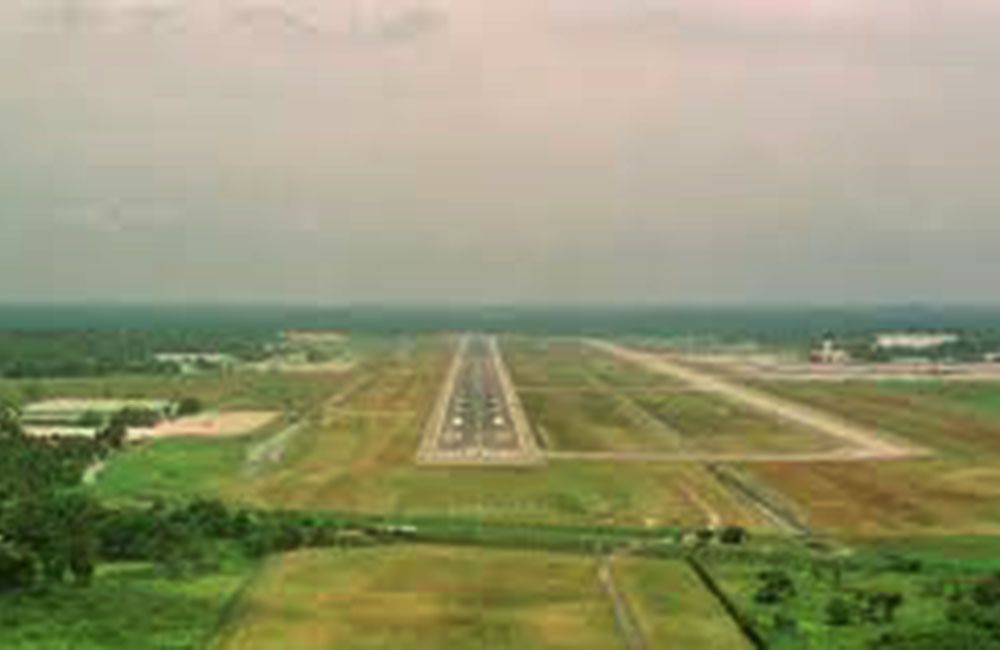
Domestic airports to operate regional flights
Sri Lanka’s domestic airports are to be upgraded for the operation of the regional commercial flights. The Civil Aviation Authority (CAA) of Sri Lanka is set to perform certification of aerodromes for the commencement of Regional Air Service operations.
This regional commercial flight initiative is in conformity with the applicable standards to foreign destinations. The CAA has been directed to prepare the border control formalities to discharge their legitimate functions at such airports. All those modalities aimed at operating regional commercial flights have been approved by the Cabinet of ministers recently.
During the past several years, the Government has taken a series of measures to improve the domestic aviation. Consequently, action has been taken to develop the Batticaloa Airport and to enhance civil aviation facilities at the Ratmalana Airport while steps are being taken to improve the Palali Airport.
The upgraded Palali airport will be able to accommodate regional airliners from the Indian subcontinent from September, State Minister for Civil Aviation Ashoka Abeysinghe said.
Sri Lanka government has provided LKr 2 billion to upgrade the airport that will see a renovated runway, a better terminal and a temporary air traffic control tower will be set up.
Sri Lanka Tourism Promotion Bureau (SLTPB) will further invest another LKR 1 billion to assist in the refurbishment and the development of the Palali domestic airport into an international airport.
Abeysinghe said that with the granting of free visa to 48 countries including India, the Palali international airport would get attention from Indian airlines and tourists.
Meanwhile, an Airport Aviation official said that the international Air Transport Association (IATA) approvals have been received (IATA-JAF) to operate international flights.
IndiGo, an Indian low-cost airline headquartered at Haryana, India and the largest airline in India by passengers carried and fleet size, with a 48.1% domestic market share as of June 2019, is also expected to be the first international airline to operate to Palali.

No change in 15% interest given to senior citizens' savings accounts
The special interest rate of 15% offered by the Government for senior citizens have not been changed despite the Central Bank reducing deposit rates in commercial banks, the Finance Ministry said today.
"There is no truth in the media reports published by different media saying that the 15% special bank interest rate which has been granted by the Government for senior citizens has been reduced," the statement read.
The special interest rate of 15% granted for the fixed deposits maintained by senior citizens was introduced though Budget 2015 and, it has been continuing with effect from 13.03.2015 without any changes, the Ministry said.
Withholding tax threshold increased!
However, Finance Minister Mangala Samaraweera had extended the tax exemption granted to senior citizens by a further LKR 500,000 taking the tax free interest income threshold to LKR 1.5 million.
The treasury has provided nearly LKR 16 billion annually to commercial banks to provide for the increased interest rate, the Finance Ministry noted.
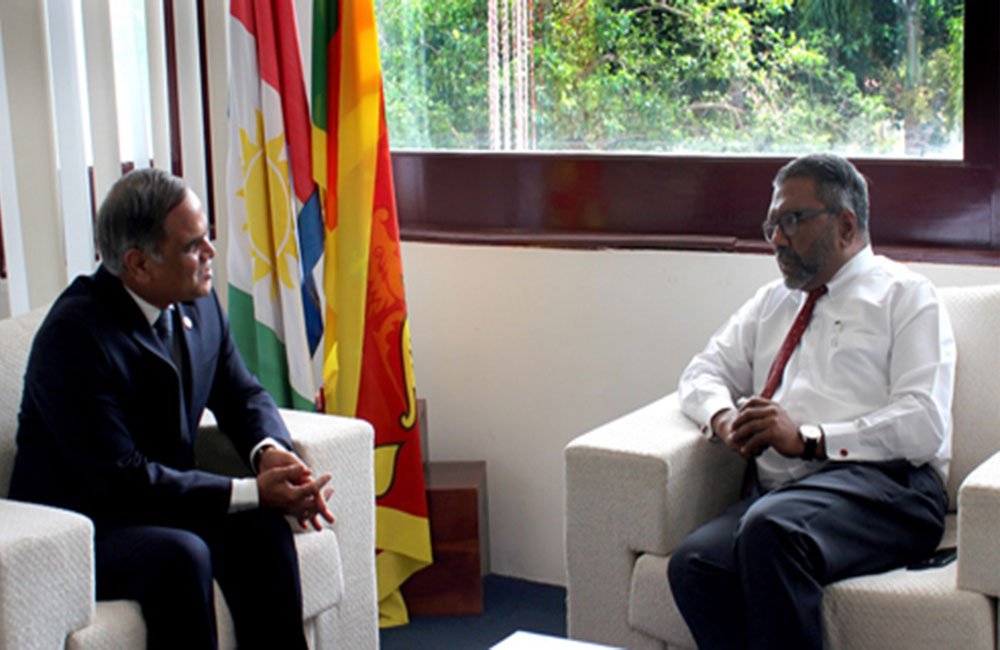
Discussion on bringing back Lankan refugees in India
A discussion has been initiated by Northern Province Governor Dr. Suren Raghavan yesterday (2) with the Chief of International Organisation of Migration (IOM) for Sri Lanka and Maldives, Sarat Dash on measures that could be taken to bring back Sri Lankan refugees in India.
The discussion had taken place when Dash had called on Governor Raghavan at the Governor’s Secretariat.
Dash has said the IOM could spend LKR 6.5 million to bring the Sri Lankan Tamils living in India as refugees and there is a delay in the process of bringing them to the island due to some unexpected reasons. The IOM Chief has further requested the Governor’s assistance to overcome these issues.
Dr. Raghavan has said he would discuss the matter with Sri Lanka’s Foreign Affairs Ministry officials and other relevant officials and would take necessary action to assist the IOM.
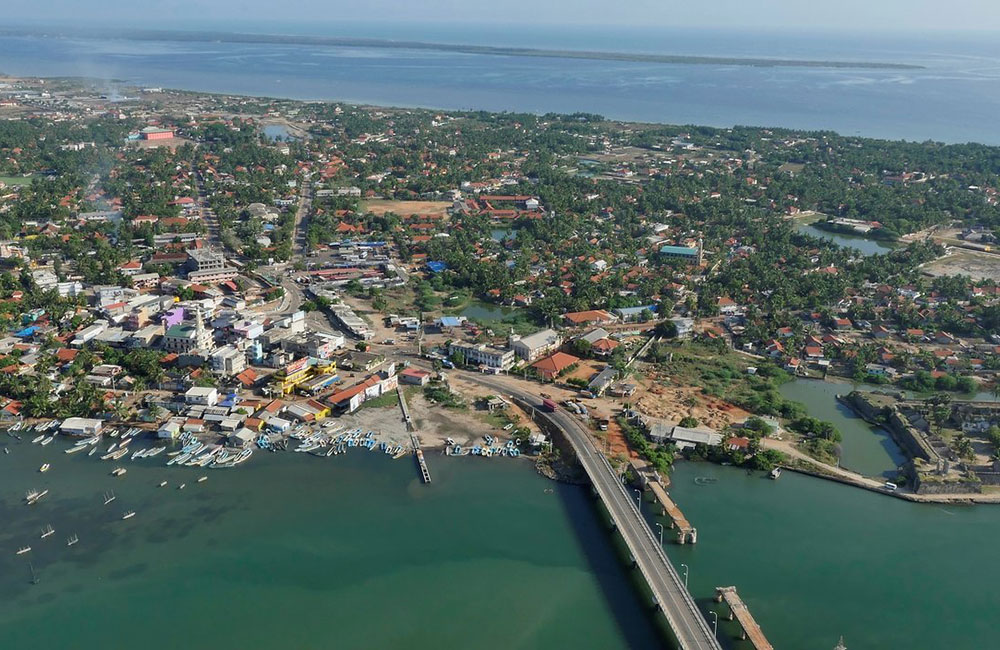
Mannar district's development progress at snail's pace
Mannar District Development projects are yet to be implemented due to management and planning deficiencies, a progress review report revealed.
An industrial estate is to be set up in the 24 acres of land in Mannar region to attract investors.
Government sources have cited that this industrial estate will have the potential to include garment, fish processing plants and various fishing related equipment production, salt based and chemical products as well as certain agriculture products.
The Government’s plan to establish the industrial estate could revitalize the somewhat diluted industries of salt production and fish canning which were operated in a larger scale in the region prior to the break out of war.
The aquaculture industrial zone in Mannar District is now running into troubled waters due to the absence of a feasibility study before the commencement of the project and the deficiencies in the preparation of environment assessment reports.
The project had been commenced in the month of August 2016 and had been planned to complete in the year 2018 with the objectives of increasing the production and improving the level of quality of the species of environment friendly coastal and ocean aquaculture products.
Provision of LKR 290 million had been provided for this and a sum of LKR 8 million had been spent as at month of March 2018 for survey activities of land, water facilities, fuel and foreign training.
Furthermore, the fisheries ministry's plan of setting up of several breeding centers along with the development of aquacultural resources in 116 lagoon areas in Sri Lanka is yet to be materialized.
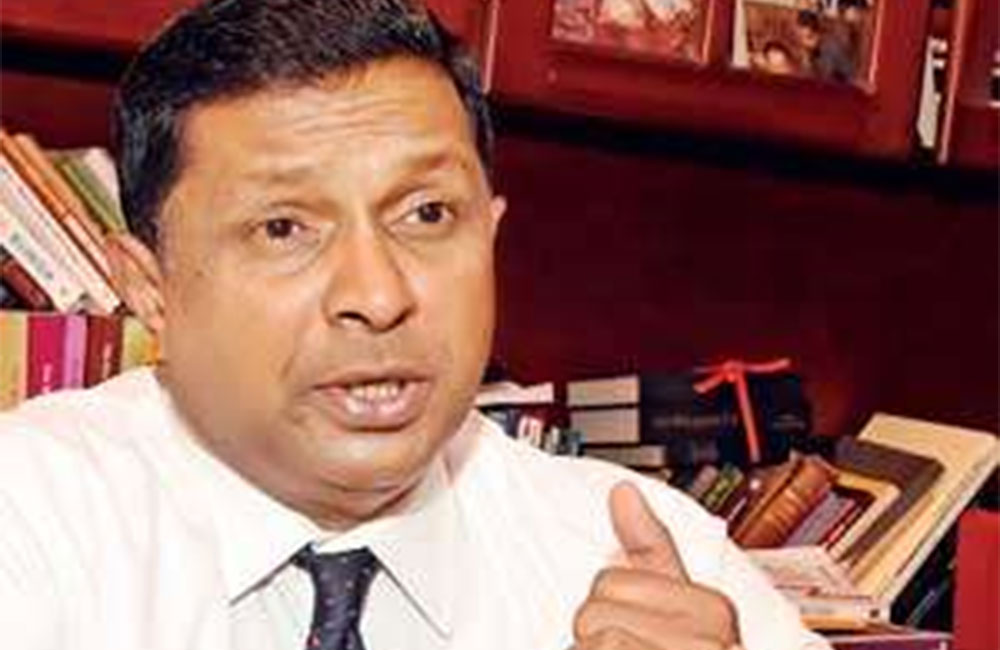
Maithri resigns
Central Province Governor Maithri Gunaratne has resigned from the post of Governor today. Several social media sites reported earlier today that President Maithripala Sirisena had requested Gunaratne as well as Southern Province Governor Keerthi Tennakoon last night to resign from their posts.
It was further reported that senior members and organizers of the Sri Lanka Freedom Party (SLFP) had continuously complained against the actions of Governors Gunaratne and Tennakoon to the President.
The senior SLFP members have claimed that the two Governors had sidelined the SLFP organizers in the two provinces and were more supportive towards the organizers of the Rajapaksa led Sri Lanka Podujana Peramuna (SLPP). The issue was even taken up for discussion at the SLFP Central Committee recently.

IS had no involvement in SL attack: UN panel
Despite claims being made to the effect by the leadership of Islamic State (IS) of its involvement in the Easter Sunday attacks in April, a panel appointed by the UN has noted that the IS was not involved in the April attacks in Sri Lanka.
The UN panel that investigated into the Easter Sunday attacks in Sri Lanka was appointed by the UN Security Council (UNSC). The UN panel has stated in a report that the attacks in Sri Lanka show the continuing appeal of Islamic State of Iraq and Levant in Libya (ISIL) propaganda and the risk that indigenous cells may incubate in unexpected locations and generate a significant terrorist capability.
These and other ISIL attacks on places of worship, alongside the attacks in Christchurch, New Zealand, in March 2019, offer a troubling narrative of escalating interfaith conflict, the specialist monitors at the UNSC has stated in the report.
The group is currently dependent upon ISIL-inspired attacks, such as the Easter Sunday bombings in Sri Lanka which Abu Bakr al-Baghdadi mentioned but which ISIL leadership clearly knew nothing about in advance.
Whether or not the Sri Lankan attacks were motivated by the attacks in Christchurch, New Zealand, in March 2019, the narrative of interfaith conflict is concerning, the report has further noted.
The Easter Sunday suicide bombings on April 21st was carried out against churches and luxury hotels in three cities and seven locations in Sri Lanka resulting in a total of 258 deaths. The bombings were conducted by the local groups National Thowheed Jama'ath (NTJ) and Jammiyathul Millathu Ibrahim (JMI).
According to the UN report, some of the suicide bombers had travelled to the Syrian Arab Republic and received weapons training from ISIL. The report has noted that the explosives specialists are believed to have studied ISIL methods for constructing improvised explosive devices on the internet and tested the designs before the attacks. Ball bearings, nails, and a combination of chemicals were used in the bombs. Light bulb filaments and washing machine timers were used for initiation.
The report has pointed out that despite the claim of responsibility by ISIL, member state investigations have revealed that the ISIL core had not directed or facilitated the attacks, nor did it know about them in advance. It was a locally instigated and led attack inspired by ISIL ideology, the report has added.
Furthermore, the bombings were aimed at boosting the global image of ISIL after its military defeat in Iraq and the Syrian Arab Republic.
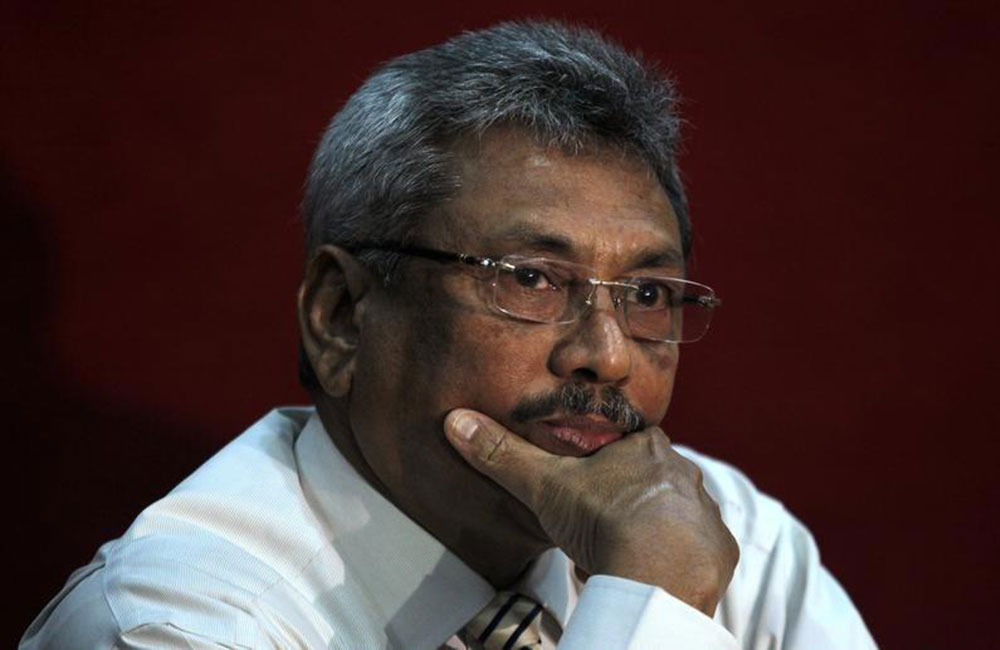
Controversy over Gota's new passport
The controversy over the dual citizenship of former Defence Secretary and presidential hopeful Gotabhaya Rajapaksa has taken center stage with documents of his loss of US citizenship circulating in social media platforms.
However, the latest issue to hit social media platforms is the issue of Rajapaksa obtaining a Sri Lankan passport, which is not a dual citizen’s passport, after surrendering his US passport and other documents he had on being a dual citizen.
It is alleged that Rajapaksa had obtained the Sri Lankan passport with the assistance of a senior minister of the UNP government. It has already been reported that Rajapaksa had travelled to Singapore for medical treatment using this newly obtained Sri Lankan passport.
According to a news report published in the Lankaenews website, Rajapaksa had not completely denounced his US citizenship when he obtained the Sri Lankan passport with the assistance of a senior government minister.
The website has further stated that granting Rajapaksa a Sri Lankan passport without the “dual citizen” stamp in such a scenario is a serious matter that requires a probe.
The passport issued by the Sri Lankan authorities to dual citizens has a “dual citizen” stamp on the second page of the respective passport. However, the passport that Rajapaksa currently has in his possession does not have the “dual citizen” stamp in it. According to the news report, it is a senior government minister who had intervened and ensured that Rajapaksa received a passport without this stamp.
Gotabhaya Rajapaksa has already said to the media that he is no longer a dual citizen and that he is a Sri Lankan citizen.
However, the Immigration and Emigration Controller has told the media that the Sri Lankan passport issued to Rajapaksa had no bearing on his renunciation of the US citizenship.
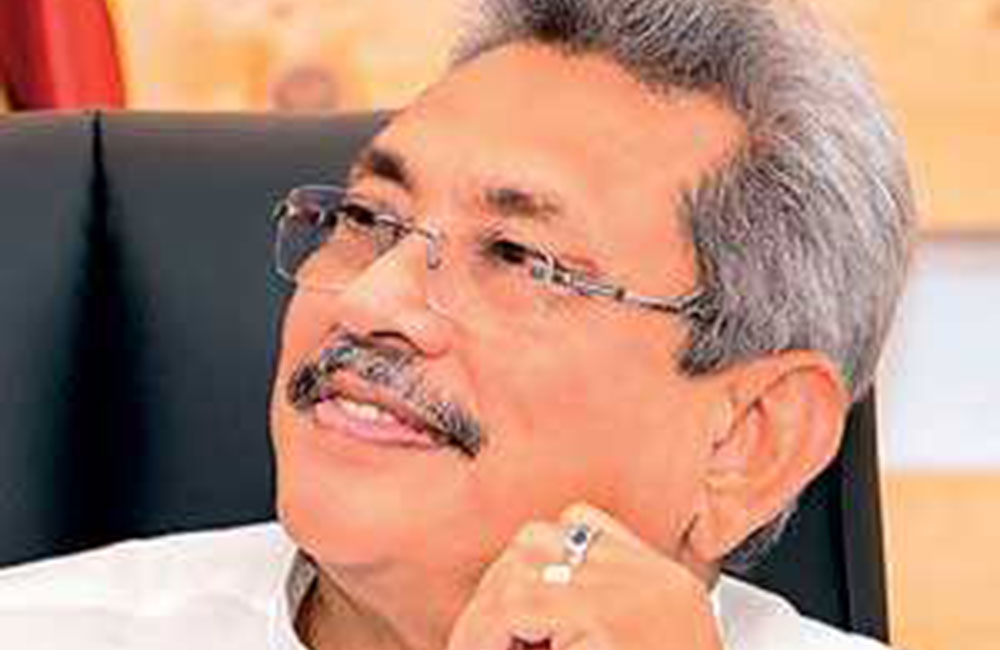
Officials wary to probe legality of Gota's citizenship
Questions have been raised as to how Gotabhaya Rajapaksa obtained a passport from the Department of Immigration and Emigration in May omitting an endorsement of his dual-citizen status, the Daily FT reported.
Rajapaksa told reporters last week that this passport was proof that he was no longer a dual citizen under Sri Lankan law. Immigration officials, however, told the Daily FT that persons with dual citizen status are required to make a formal application under the Citizenship Act if they wish to regain regular Sri Lankan citizenship. Rajapaksa had not followed this regular process, they said, but had somehow obtained a passport which did not indicate his dual citizenship status.
Rajapaksa’s passport application, immigration records showed, was received and processed on an urgent basis on 7 May after 3.00 p.m, which is the cut-off time for new applications. Rajapaksa did not appear at the immigration department to be finger-printed, and the passport was issued in a matter of hours under a new National Identity Card (NIC) number not connected to Rajapaksa’s previous NIC or border control records.
The use of a new NIC prevented the immigration computer systems from automatically noting that Rajapaksa was indeed on record as a dual citizen. The manoeuvre may have allowed him, in theory, to bypass the legal process followed by ordinary persons to prove that they are no longer dual citizens.
Dual citizenship, the officials said, is a ‘status’ granted by the Government to former Sri Lankan citizens allowing them to exercise all of the rights of a Sri Lankan citizen. “Unlike regular citizenship, it is a strictly political decision,” the officials said. “The Minister has unquestioned authority to approve, deny or revoke dual citizenship as he determines in the national interest.”
According to Section 19 of the Citizenship Act, the Minister may only grant dual citizenship “if he is satisfied” that doing so “would, in all the circumstances of the case, be in the best interests of Sri Lanka.”
Unlike normal citizens, the Citizenship Act allows the Minister to revoke the status given to dual citizens. Section 19 (7) states that “the Minister may, at any time, revoke” a declaration of dual citizenship status if a dual citizen “has so conducted himself that his continuance as a citizen of Sri Lanka will not be of benefit to Sri Lanka.”
Should a dual citizen wish to become an ordinary Sri Lankan citizen whose status is not subject to revocation, they must apply under the Citizenship Act for a declaration that they are again full Sri Lankan citizens. This again is a decision that is delegated to the Minister for citizenship matters.
According to an affidavit filed by Gotabaya Rajapaksa in the Supreme Court, he returned to Sri Lanka in 2005 in order to assist with his brother’s presidential election campaign. He was an American citizen and not a Sri Lankan citizen at the time. Immigration records indicate that he arrived in Sri Lanka on his American passport with an on-arrival tourist visa in order to campaign for Mahinda Rajapaksa, applying for dual citizenship on Friday, 18 November 2005, the day his brother was sworn in as President of Sri Lanka.
Election records show that Gotabaya Rajapaksa was also a registered elector in Sri Lanka for the electoral list used in the 2005 presidential election, despite not being a citizen or entitled to vote at that election.
An electoral list for Medamulana in Weeraketiya lists ‘Rajapaksa Nandimithra Gotabaya’ as elector number 130 at house number 114. Also registered to vote from that address were candidate ‘Rajapaksa Percy Mahendra’, his wife ‘Rajapaksa Shiranthi’, Gotabaya Rajapaksa’s American citizen wife ‘Rajapaksa Ioma’ and Chamal Rajapaksa.
Alarmingly, investigators were unable to locate any files pertaining to Rajapaksa’s dual citizenship at the Immigration Department. The only records available indicate that he had applied for dual citizenship on 18 November 2005, the day his brother Mahinda Rajapaksa was elected President.
Records show that his application was approved by the Minister on the next working day, Monday, 21 November, despite there having been no Minister yet appointed at that time. Despite a large backlog of applications over several months, Rajapaksa’s was brought to the front of the line.
According to the computer system, while the dual citizenship was granted in November 2005, the data pertaining to Rajapaksa was only entered into the system on 13 January 2014. In such a situation, officials would typically refer to the original paper records or digital scans of them to ascertain the factual position.
However, officials have found that there are no copies of the application, receipt of payment, or the dual citizenship certificate granted to the former Defence Secretary on file at the department. While dual citizens are usually required to present their dual citizenship certificate when obtaining a new passport, immigration records show no sign that Rajapaksa had ever presented a dual citizenship certificate when obtaining a passport.
The standard procedure followed by immigration investigators in situations of this nature, where irregularity is suspected in the issue of a passport, and critical records of dual citizenship appear to be altered or missing, is to send a formal complaint to the Criminal Investigation Department (CID) for further investigation.
However, in this instance, it is learnt that immigration officials have not forwarded information to the CID.
(Daily FT)

Sri Lanka strengthens its climate resilience
The Sri Lanka government will be strengthening the process with regard to climate resilience, mitigate flood risks and conservation of environment with World Bank assistance, officials said.
The World Bank recently approved a US$ 310 million loan to reduce and mitigate flood risks in the lower Kelani basin in Colombo and improve weather forecasting and early warning systems across Sri Lanka. The Climate Resilience Multi-Phase Programmatic Approach project is the first of a three-phase investment program totaling US$ 774 million and to be implemented over 8 years.
Sri Lanka ranked second among countries most affected by extreme weather conditions in 2017 and is expected to see a 1.2 percent annual GDP loss by 2050 due to climate change, officials said.
Floods impacted around 14 million people between 2010 and 2018 and droughts affected about 12 million people, official data showed. Evidence suggests flood frequency will increase and that nearly 87 percent of Sri Lankans are living in areas likely to experience extreme temperatures and rainfall that will impact their lives, they said.
This comprehensive climate resilience program will reduce losses to people’s livelihoods and public assets while reducing shocks on the economy,” said Idah Z. Pswarayi-Riddihough, World Bank County Director for Sri Lanka. The programme aligns with the government's plans to ensure fiscal and physical resilience and reduce the vulnerability of Sri Lanka’s economy in the aftermath of the 2016 and 2017 floods.
The new forecasting systems are expected to benefit the entire nation, including 3.5 million beneficiaries living in flood-prone areas in 25 river basins.
Page 297 of 510